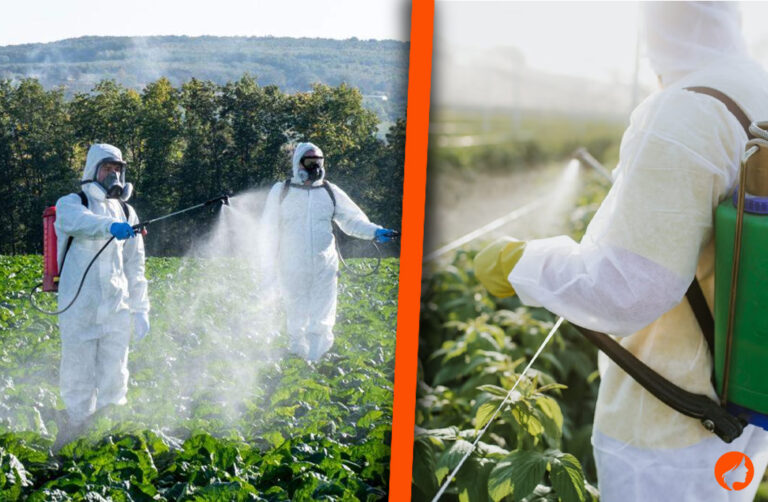Introduction to Pest Management
Pest control is essential for upholding a secure and pleasant home environment. Pests like insects and rodents can severely damage your home’s structural integrity and its inhabitants’ health. These unwanted guests can deteriorate furniture, contaminate food, and transmit diseases. As awareness of the environmental and health costs of traditional chemical pest controls increases, homeowners are increasingly looking for innovative, eco-friendly solutions. A strategic approach to pest management often involves assessing the current situation and considering preventative and responsive measures. Occasionally, consulting with a professional exterminator in Concord can offer comprehensive treatment solutions to address and prevent pest issues effectively.
Common Household Pests
Recognizing the specific pests likely to invade your home is crucial in effectively controlling pests. The most frequently encountered household pests include ants, cockroaches, rodents, termites, and bed bugs. Each presents unique challenges and threats. Rodents, for instance, cause structural damage by gnawing through wood and wires and pose health risks through their droppings. Cockroaches are notorious for triggering allergies and asthma, especially in children. Termites can quietly destroy your house’s wooden structures, leading to costly repairs. Knowing these pests’ habits, life cycles, and signs of infestation is essential for prompt and effective management.
Prevention Techniques to Minimize Infestations
Prevention serves as the foundation of successful pest control. Minimize the likelihood of a pest invasion by sealing potential access routes and removing elements that draw in pests. Start by sealing cracks in walls and floors, repairing broken screens, and ensuring windows and doors are correctly fitted. Another vital preventive measure is keeping your home clean and clutter-free. Regularly dispose of garbage and store food properly to remove common attractors. Moisture attracts a wide range of pests, so addressing leaks and ensuring proper ventilation can also decrease the likelihood of infestations. Implementing these preventive strategies creates a less hospitable environment for pests.
Safe and Natural Pest Control Methods
Many homeowners are opting for natural pest control methods to avoid the drawbacks of conventional chemical products. Essential oils like peppermint, eucalyptus, and tea tree oil are known for their natural pest-repelling properties. These oils can be used directly or diffused through the air to deter pests such as ants and spiders. Diatomaceous earth is another popular choice; this naturally occurring powder physically damages insects’ exoskeletons, dehydrating and killing them without toxic chemicals. If you’re interested in more natural pest control methods, options like vinegar solutions, homemade traps, and biological controls can effectively manage pests sustainably.
Innovations in Pest Management Technology
Pest management has witnessed significant technological advancements, providing homeowners more effective and humane pest control methods. Ultrasonic pest repellents are devices designed to emit sound frequencies that are uncomfortable for pests but inaudible to humans and pets. These innovations offer a clean, noise-free solution for areas prone to various infestations. Other advancements include clever traps and sensors that can monitor pest activity and send alerts to your smartphone, allowing for real-time management and monitoring. Keeping abreast of emerging pest management technologies can empower homeowners to control pests more effectively with minimal environmental impact.
Professional Pest Control Solutions
At times, professional intervention may be necessary to manage severe infestations effectively. Certified pest control practitioners have the expertise to diagnose the extent of an infestation and apply targeted treatments. These professionals use specially formulated products and advanced methods that are often more effective than self-made strategies. Professional services typically have guarantees and follow-up evaluations to ensure the pest problem does not recur. For those who prefer a comprehensive solution without the hassle, seeking the help of a professional can be the safest and most efficient choice.
DIY vs. Professional Services
Choosing between DIY methods and professional services involves weighing the severity of the pest problem and personal preferences. DIY solutions can be rewarding and effective for minor issues, offering cost savings and the ability to manage the problem on your schedule. However, large-scale infestations or issues requiring specialized treatment often warrant professional services. Professionals bring safety knowledge, expertise, and access to commercial-grade therapies, which can be beneficial for more challenging pest problems. Evaluating your situation will help you decide which approach will work best.
Must Read: The Role of Petroleum Accountants in the Energy Sector
Tips for Choosing a Pest Control Service
Selecting an exemplary pest control service is crucial to ensure safety and effectiveness. Start by researching companies with strong reputations, reflected in customer reviews and ratings. Verify that the company holds the necessary certifications and insurance. Ask about their pest management techniques, emphasizing eco-friendly methods if sustainability is a priority for you. Finding a service that aligns with your values and needs ensures you get quality and conscientious care for your home environment. Additionally, transparency about the chemicals and methods used can help ensure the service is safe for your family and pets.
